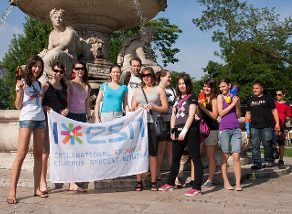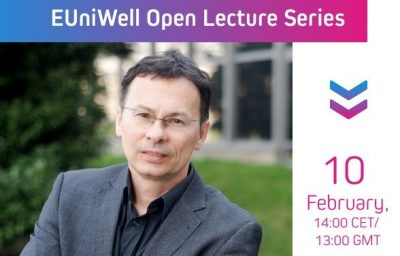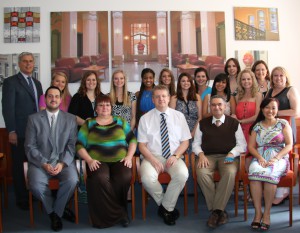“Everybody wants to go west,” is how ERASMUS Coordinator Ms. Katalin F. Tóth summed up the current trend in the European Commission’s best-known programme. Nearly one hundred Semmelweis University students –both Hungarian and international– applied for ERASMUS scholarships this year, the majority of whom will start their studies abroad in the fall semester.

An important factor in the growing popularity of the ERASMUS programme is that studies completed during the students’ one or two semesters abroad count towards their final degree at their home institution, as long as at least 75 percent of the sending and receiving institution’s curricula match. At the same time, however, this means that universities are finding it increasingly difficult to satisfy the growing demand. “There has been a sharp increase over the past two years in the number of students wishing the participate in the ERASMUS programme,” Ms. F. Tóth related. As a direct result, many foreign universities have tightened the application requirements for incoming students; last year, more than 20 percent of Semmelweis University’s supported applicants had their application rejected by the university of their choice.
Among the most popular destinations for Semmelweis University students are Germany, France and Switzerland. Most of the students who choose to study at our university come from Poland, Romania and Slovakia, though Italian, Portuguese and Spanish students are also well represented.
Although attending university in a new country may seem scary to some, students who choose to attend Semmelweis University can find comfort in the fact that an all-volunteer student group is working actively to ensure that they feel at home. Ms. Zsófia Vincze, coordinator of the ERASMUS Student Network’s Semmelweis University Chapter (ESN Semmelweis) said that incoming students generally seek out the assistance of their more than 40 student-mentors in such crucial first steps as finding suitable accommodation. The group also organises various recreational programmes for ERASMUS students throughout the year.
For more information about the ERASMUS programme, please visit the University’s ERASMUS website.
Pálma Dobozi
(Translated by Gina Gönczi)


